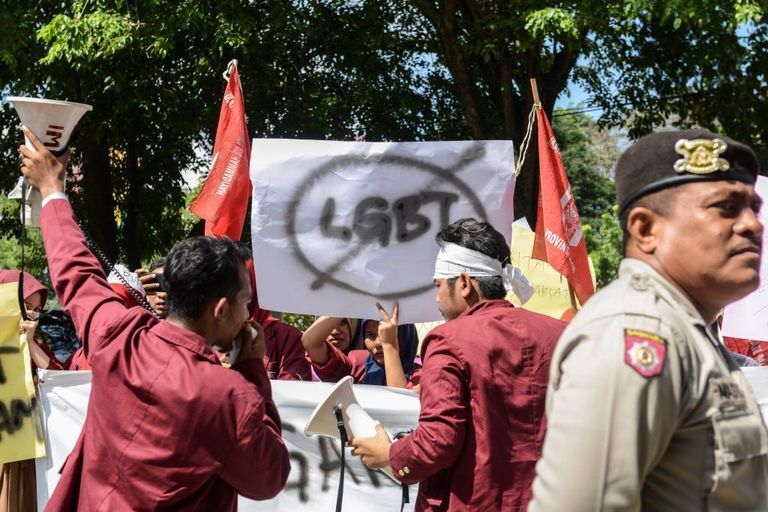The human rights chief of the United Nations condemned Indonesia for a proposal which could criminalize homosexuality in the once tolerant nation.
Indonesian President U.N. High Commissioner for Human Rights Zeid Ra’ad Zeid al-Hussein claimed any legislative action targeting LGBTQ people is “discriminatory” and “deeply wrong.” He told members of the media on Wednesday that the probable move is indicative of “strains of intolerance seemingly alien to Indonesian culture that have made inroads here.”
“The hateful rhetoric against this community that is being cultivated seemingly for cynical political purposes will only deepen [LGBTQ people’s] suffering and create unnecessary divisions,” said al-Hussein, who is a member of the Jordanian royal family.
Indonesia’s Parliament is considering an update to its criminal code which would ban sex outside of marriage with a sentence of up to five years in prison. The revised Indonesian Criminal Code is, thus, expected to include a ban on same-sex relations, as the country has yet to recognize marriage equality.
Lawmaker Arsul Sani, who co-authored the updated version, has not denied this speculation.
Sani told the Australian Broadcasting Corporation in a January interview that the policy changes would apply to same-sex activity. Under the new criminal code, homosexuality will be classified “the same as adultery, where men and women having sex outside marriage can be considered a crime.”
He rationalized the decision by saying homosexuality is “basically a forbidden act” already.
The U.N. representative’s comments were made during a recent visit with Indonesian President Joko Widodo, who is reported to have told al-Hussein that LGBTQ people are not accepted in Indonesia, citing tradition. Widowo, who has frequently flip-flopped on queer and trans rights, promised his government would not “overpunish” gender and sexual minorities.
The world’s largest Muslim-majority nation was once viewed as more forgiving toward LGBTQ individuals than neighboring countries in Southeast Asia but has caved to an Islamist push in recent years.
Indonesian activist Dede Oetomo previously told INTO that over 400 queer and transgender people had been arrested in the past year and a half, as the government began cracking down on the LGBTQ community. Although homosexuality is currently legal under national law, police arrested 58 men at a Jakarta bathhouse last year for “pornography” and “prostitution.”
A dozen trans women in the semi-independent province of Aceh, which is permitted to rule under Sharia law, were detained by authorities in January and forced into conversion therapy. Their heads were shaved during their arrest, and they were forced to wear men’s clothing.
Last week the country’s Health Ministry classified homosexuality as a “mental disorder”following a 2017 report calling same-sex behavior “against the ethos of the country.”
Al-Hussein, however, expressed hope the nation could still progress on LGBTQ rights.
“There are some dark clouds on the horizon,” he said this week, “but I hope the common sense and strong tradition of tolerance of the Indonesian people will prevail over populism and political opportunism.”
Photo credit should read CHAIDEER MAHYUDDIN/AFP/Getty Images
Don't forget to share:
Help make sure LGBTQ+ stories are being told...
We can't rely on mainstream media to tell our stories. That's why we don't lock our articles behind a paywall. Will you support our mission with a contribution today?
Cancel anytime · Proudly LGBTQ+ owned and operated
Read More in Impact
The Latest on INTO
Subscribe to get a twice-weekly dose of queer news, updates, and insights from the INTO team.
in Your Inbox













